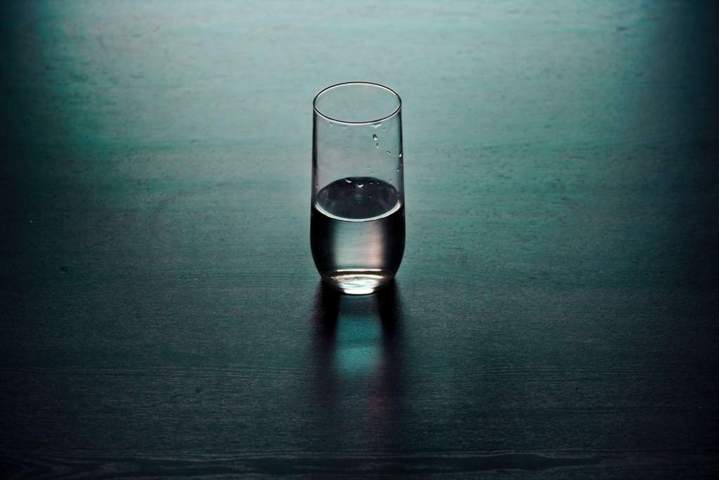In this blog post, we explain how much water you should drink, how to drink water, how often you should drink water, when to drink water, the importance of drinking water in the morning, and ways to help yourself drink more water to stay hydrated. We also explain how making a few small changes in the way in which you drink water (which we call “hydration hacks”) can have a profound impact on your health and well-being.
Introduction
Most of us drink water without giving much thought to how we do it. After all, isn’t drinking water as simple as pressing a water bottle to our lips? In fact, the way in which we drink water can actually be life-changing.
Do you ever find yourself feeling bloated after eating? Do you ever find yourself feeling sleepy or drowsy after lunch or dinner? Do you ever find that your efforts to stay hydrated result in many frantic trips to the bathroom, including at night? Do you ever suffer from clogged pores, acne, or dull-looking hair? Amazingly, these and other issues can be mitigated by adopting a special method for drinking water which has been prescribed by ayurvedic medicine and followed by practitioners for centuries.
How to Drink Water
The most important aspect of the ayurvedic method of drinking water is to ensure that you are drinking water in a manner that permits your body to effectively absorb it and use it efficiently. In order to do so, ayurveda suggests that you adopt what we call the “continual hydration approach” rather than what we call the “high volume hydration approach”. In particular, you should be aiming to take a few small sips of water frequently throughout the day instead of drinking large volumes of water a few times throughout the day.
How Often Should You Drink Water?

In particular, it is ideal to take a couple sips of water at least every 30 minutes (subject to the other ayurvedic guidelines described below). In fact, drinking small amounts of water frequently throughout the day maximizes hydration and accelerates the body’s detoxification process. Accordingly, adopting the continual hydration approach can increase your energy levels, improve the health of your skin, nails, and hair, combat premature aging, improve digestion, strengthen your immune system, and generally result in a greater overall sense of well-being.
How Much Water Should You Drink?
Many people set a particular goal for themselves in terms of the amount of water they need to drink each day and make sure they stick to that goal, even if it requires that they drink a large volume of water in a short period of time in order to “catch up” or “stay on target”. Such an approach may, for example, lead us to drink 2 or 3 glasses of water in one sitting in order to meet our goal of drinking 8 glasses of water per day (more on that later in this blog post).
Most people are surprised to learn that the high volume hydration approach (also known as “chugging”) can be less productive than they think. As amazing and adaptable as our bodies are, they aren’t designed to absorb large volumes of water in a short period of time, which means that the high volume hydration approach will generally result in the water running right through you! Unfortunately, this will not only cause you to go to the bathroom frequently (including during the night, which can disturb your sleep), but it will also deprive you of the benefits of proper hydration. In addition, the high volume hydration approach can, over time, lead to the depletion of essential minerals from our bodies.
Of course, the high volume hydration approach is perfectly understandable! We’re all busy, and we can’t always manage to keep hydrating throughout the day, particularly when our days become loaded with meetings, trips across town, emergencies, and other occurrences that aren’t conducive to always ensuring that we have a nearby source of water. Accordingly, many of us may feel the urge to drink a large volume of water once we return to a source of water so as to help us meet the goal we have set for ourselves.
If you find that your lifestyle tends to push you towards the high volume hydration approach, then there are a few handy “hydration hacks” you can employ to make it much easier to enjoy the benefits of the continual hydration approach. One easy hydration hack is to find a water bottle that you love, both functionally and aesthetically. We tend to surround ourselves with things that give us joy, so a water bottle that meets that requirement is much more likely to make its way into your bag as your leave home for the day. In addition, you are much more likely to actually drink from a water bottle that you love.

Many of our customers find that they have adopted excellent hydration practices through using one of our copper water bottles. In particular, many of our customers have commented that the aesthetically pleasing nature of their copper bottle makes it much more likely that they will keep it at their desk or in their bag when they leave home, and also makes it much more likely that they will take sips from it throughout the day. The gorgeous gleam of pure copper can be a great reminder to keep sipping!
Another great hydration hack is to set automatic alerts on your smartphone that remind you to take a few sips of water every 30 minutes. To avoid intrusions, you can set the alerts to vibrate. While the reminders may be annoying for the first day or two, they should soon help make your new hydration regime a habit, at which time you will have no further need for the reminders and can safely remove them. Interestingly, after a few days of this approach you may also find that your body becomes accustomed to your new hydration regime and that you naturally and automatically take a few sips of water every 30 minutes without needing to actively think about it.
When to Drink Water
It’s also important to keep in mind exactly when you are drinking water relative to the timing of your meals.
Drinking Water Before or After Eating
In general, you should try to avoid drinking water while having a meal and instead hydrate at least 30 minutes before eating or 2 hours after eating. This is important because drinking water can have the effect of dousing the digestive fire that builds up in our stomachs before a meal (this digestive fire is also known as “agni” in ayurvedic medicine). Drinking water well before you have a meal ensures that your digestive system works as efficiently as possible, which can help avoid stomach-aches and that bloated feeling that many people experience after having a meal.
Drinking Water While Eating
The same concept applies to drinking water while eating. In general, you should avoid drinking water during a meal if possible. However, if necessary, and particularly if you are consuming salty foods, it’s fine to sip a small amount of water while having your meal. If you drink too much water while you eat, your digestive system may not operate as well as it otherwise would. In order to avoid feeling thirsty after a meal, aim to have a few sips of water 30 minutes before a meal. In addition to helping you avoid feeling thirsty after your meal, the water will also hydrate your stomach’s lining, which will make it easier to produce enough stomach acid to properly digest your meal.
The Temperature of Drinking Water
It’s also vital to be mindful of the temperature of the water that you are drinking. In general, you should aim to drink room temperature water (or, better yet, lukewarm water) rather than cold water. The logic for this is the same as that set out above, except that cold water is even more prone to douse the digestive fire that builds up in our stomachs. In particular, cold water can freeze the enzymes and fluids in your gut, which can prevent your body from properly digesting food, and which can in turn increase the amount of toxins in your body.

In addition, drinking cold water can cause a contraction of blood vessels, which further increases the likelihood that toxins will remain inside your body rather than being excreted through your lymphatic system, which is essentially the network of tissues and organs in your body that is responsible for getting rid of toxins. The constriction of blood vessels can also prevent blood from circulating throughout your body, thereby reducing the delivery of nutrients through your body.
Conversely, drinking room temperature or lukewarm water supports the lymphatic system, which means that, over time, more toxins will be expelled from the body. In particular, drinking room temperature or lukewarm water flushes the lymphatic system, helps soften hardened tissues, dilates, cleanses and hydrates deep tissues, and heals and repairs the digestive system.
Drinking room temperature or lukewarm water can be particularly important for women during menstruation or for couples that are trying to become pregnant. This is because cold water can reduce circulation in a manner that weakens the reproductive organs. Of course, this isn’t to say that you can never enjoy drinking cold water, particularly on a hot day or after a hard workout! Cold water can be fine provided that you enjoy it in moderation and at least 2 hours before any meal.
It’s interesting to reflect on how the above differs dramatically from the usual custom at most restaurants, particularly in North America. Upon arrival at a restaurant, the server generally greets us with large glasses of ice water – precisely the sort of thing we should be avoiding right before we enjoy a nice meal! To avoid that, try politely asking your server at the outset to provide room temperature water – most servers will understand and will be pleased to do it! And, remember to keep any drinking during your meal to a minimum in order to preserve your digestive fire.
How Much Water Should I Drink?
Ayurvedic principles can also help you determine if you are drinking enough water to ensure that you are always feeling your absolute best. Most of us have heard the suggestion that we all need to all drink eight glasses of water a day to avoid being chronically dehydrated. While this may be a helpful guideline or rule of thumb, it does not apply universally.
In order to maintain good health and hydration we need to take in enough water to replace the amount of water we lose daily through perspiration, excretion, and other bodily functions. The ideal daily water intake varies widely from person to person and will depend on a variety of factors, including a person’s size, diet, age, daily activities and the environment in which they conduct their activities. Obviously, a petite person sitting stationary at a desk in an air-conditioned office will need less water on a daily basis than a very tall person working at a construction site in the blistering heat.
Fortunately, our bodies are very good at determining when they are becoming dehydrated and signalling that fact to us by creating the sensation of thirst. Dryness in the lips, skin, eyes, or hair can also be a good indication that the body is becoming dehydrated. Similarly, inflammation in the skin as well as clogged pores, acne, rashes, and red eyes can be a good indication that you need to increase you water intake. Of course, healthy and beautiful skin is a good indication of proper hydration.
In addition, constipation or infrequent bowel movements, or little to no sweat, can also be a good indication that your body is becoming dehydrated. Finally, the colour of your urine is also a good way to determine the quality of your hydration. Urine that is fairly clear and straw-coloured is a good indication that you are staying well-hydrated, while urine that is dark yellow is a good indication that you need to drink more water.
Best Time to Drink Water
Ayurveda also recommends that you start your morning by drinking water (which is a practice known as “ushapan” in ayurvedic medicine). During the night, our bodies engage in a detoxification process, which explains why we often need to use the bathroom first thing in the morning. You can assist your body in flushing out accumulated toxins and stimulate a proper bowel movement by drinking water immediately after waking up. Helpfully, hydrating first thing in the morning can also reduce drowsiness and make it easier for us to launch into our mornings with energy and vigour.
Remembering to Drink Water in the Morning
To make sure you remember to hydrate first thing in the morning, keep a water glass or other water vessel on your night table. Many of our customers fill their copper water bottles before bed at night, leave them on their night tables overnight, and then drink from them first thing in the morning. Using a copper water bottle also has the benefit of transforming water into natural alkaline water, which can have a variety of health benefits.
Watch for Improvement in Your Body
By making some minor changes to your hydration habits, you can dramatically improve your health and well-being.
After following these principles for a few weeks, you should start seeing results. In particular, you should start noticing that your skin and lips are less dry. You should also notice that the health of your skin and hair has improved. Your skin should also start to clear, your pores should start becoming less clogged, and you should be much less prone to acne or other skin issues.
You may also find that your digestion has improved, that you feel less drowsy in the mornings or after meals, and that you generally feel more energetic. And all it takes is a few simple and intuitive changes in the way you consume water.
About the Authors: This article was collaboratively written by our team of researchers and writers with the benefit of all available scientific studies and other relevant literature. Our team of researchers and writers include experienced health researchers including a qualified medical professional. Please note that information in this article is not intended or implied to be a substitute for professional medical advice, diagnosis or treatment.
Did You Enjoy This Article?
Thank you for reading! If you enjoyed this article, you might also like the following articles: Intermittent Fasting and Hydration: Complete Guide and Proper Hydration and Athletic Recovery


6 comments
Mar 07, 2020 • Posted by Copper H2O
Hi Gungun, thanks for your question! There should not be any issue associated with using a copper water vessel during menstruation. Of course, please make sure you consult with your physician before adopting any health practice!
Nov 09, 2019 • Posted by Copper H2O
Hi Concetta Lopresti, as noted in our FAQ, there are plenty of benefits of drinking lemon water and other infused water and so it’s a great idea to combine those benefits with the benefits of water stored in a copper water bottle. To get the greatest health benefits, try to combine water from your copper water bottle with lemon slices or lemon juice in a cup. Copper can react with certain acids, including citric acid found in lemons, so it’s best to only use water in your copper water bottle. Please see our FAQ for more information: https://www.copperh2o.com/pages/faq
Nov 09, 2019 • Posted by Concetta Lopresti
I’m excited about my new water drinking regimen. Thank you for the information.
My question is would a slice of lemon or few mint leaves in a glass of water obstruct the effect of copper? I love my copper bottle!
Mar 07, 2020 • Posted by gungun singh
can copper vessel water taken safely during the periods (menstruation) is it safe healthy and benefivial???
Mar 04, 2018 • Posted by Copper H2O
Hi Sharon, thanks for your question! You can use any type of water in your copper water bottle, including tap water, distilled water, water that has been passed through a filter, or even bottled water. You will probably notice the greatest difference with tap water, which is generally the least alkaline and in the need of the most care. Although tap water is generally fine in most first-world cities, you may wish to consider filtering you water before pouring it into your copper water bottle.
Jan 26, 2018 • Posted by Sharon Mooney
Can I use distilled water in bottle
Leave a comment: